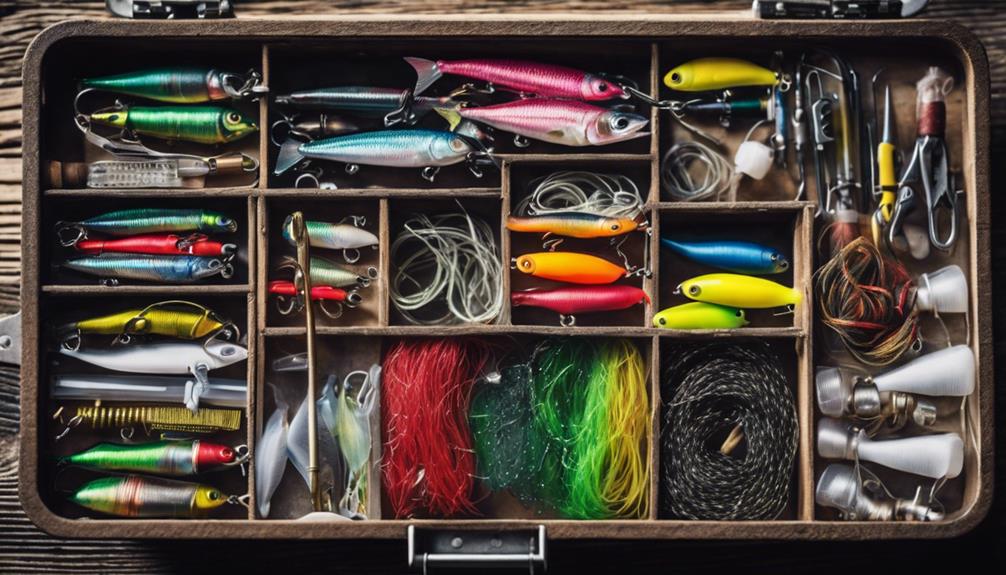Fishing is not only a relaxing pastime but also a way to connect with nature. However, before casting your line, it’s essential to understand the requirements for obtaining a fishing license. In this guide, we will cover everything you need to know about what do I need for a fishing license, including the types of licenses available, the application process, and important regulations to keep in mind.
Understanding Fishing Licenses
Fishing licenses are permits issued by state or provincial authorities that allow individuals to fish in designated waters. The regulations surrounding fishing licenses vary from one location to another, so it’s critical to familiarize yourself with your local laws. A fishing license typically serves to manage fish populations, ensure sustainable practices, and support conservation efforts. Before you head out, ask yourself, “What do I need for a fishing license?”
Different Types of Fishing Licenses
When considering what do I need for a fishing license, it’s vital to know that there are various types of licenses available. Most states offer different licenses based on the type of fishing you plan to do—freshwater, saltwater, or both. Additionally, licenses can vary based on age, residency, and duration. For instance, many states provide discounted or free licenses for seniors, children, or veterans. Some common types of fishing licenses include:
– Resident Fishing License: For state residents.
– Non-Resident Fishing License: For individuals from other states.
– Saltwater Fishing License: Required for fishing in saltwater.
– Freshwater Fishing License: Needed for freshwater fishing.
– Combination License: Covers both saltwater and freshwater fishing.
Age and Residency Requirements
When determining what do I need for a fishing license, one critical aspect to consider is age and residency requirements. Most states require individuals over a certain age (commonly 16 or 18) to possess a fishing license. However, many states offer exemptions for younger anglers, while some might also have special provisions for senior citizens. Always check the specific requirements for your state or province to avoid any penalties.
Application Process for a Fishing License
The application process for obtaining a fishing license can vary by state, but generally, it involves a few straightforward steps. Here’s what you typically need to do:
1. Choose Your License Type: Determine which license suits your fishing needs based on your age, residency, and fishing preferences.
2. Gather Required Documents: Commonly required documents include proof of residency (such as a driver’s license), identification, and sometimes proof of a fishing education course.
3. Complete the Application: You can often apply online through your state’s wildlife agency website, or you can visit a local office or authorized retailer.
4. Pay the Fee: Fees vary depending on the type of license and your residency status. Payment is typically made via credit card or cash.
5. Receive Your License: Once processed, you will receive your fishing license, which may be a physical document or a digital license.
Fishing Regulations You Should Know
When you’re considering what do I need for a fishing license, it’s also essential to understand the fishing regulations that accompany it. Each state has specific rules regarding fishing seasons, size limits, and catch limits. Familiarizing yourself with these regulations is crucial for responsible fishing. Some states require anglers to report their catch or to use specific gear, and failure to comply can result in hefty fines or revocation of your fishing privileges.
Importance of Conservation and Education
One of the underlying reasons for requiring a fishing license is to promote conservation and responsible fishing practices. Fees collected from fishing licenses often fund conservation programs and initiatives aimed at protecting aquatic ecosystems. Moreover, many states require anglers to complete a fishing education course, especially for first-time license applicants. These courses teach sustainable fishing practices and the importance of preserving fish populations. Understanding what do I need for a fishing license is not just about compliance but also about being a responsible angler.
Online Resources and Tools
The internet offers a plethora of resources for those asking, “What do I need for a fishing license?” State wildlife agencies have user-friendly websites containing all necessary information regarding license types, application processes, and local regulations. Many states also provide online application options, making it easier than ever to obtain your fishing license from the comfort of your home. Additionally, there are numerous apps available that can help you track your fishing activities, check local regulations, and even find fishing spots.
Conclusion: Get Ready to Fish Responsibly
In conclusion, knowing what do I need for a fishing license is an essential first step in enjoying this rewarding activity. By understanding the types of licenses available, the application process, and the regulations that govern fishing, you can ensure a smooth and enjoyable experience. Always remember that responsible fishing contributes to the health of our waterways and fish populations. So gear up, get your fishing license, and embark on your fishing adventures while respecting nature and its resources. Happy fishing!
